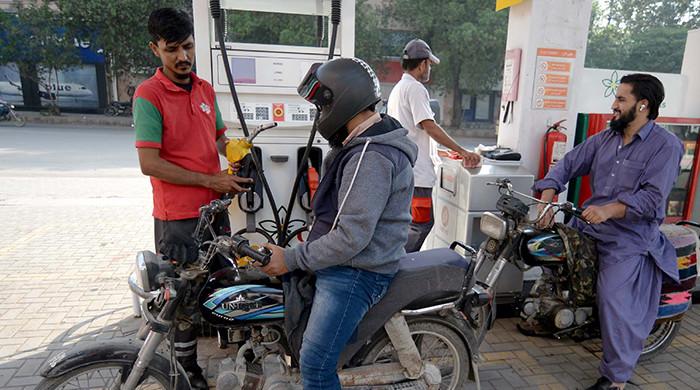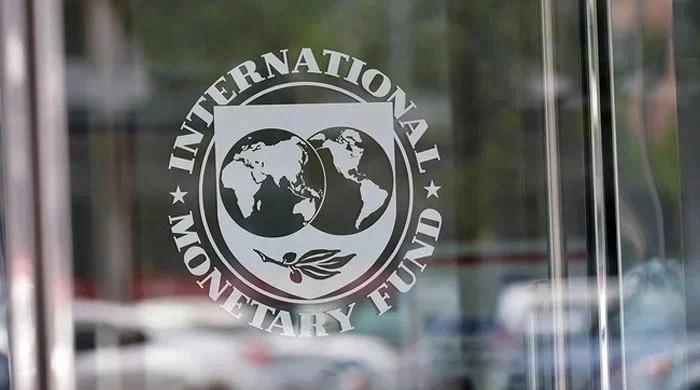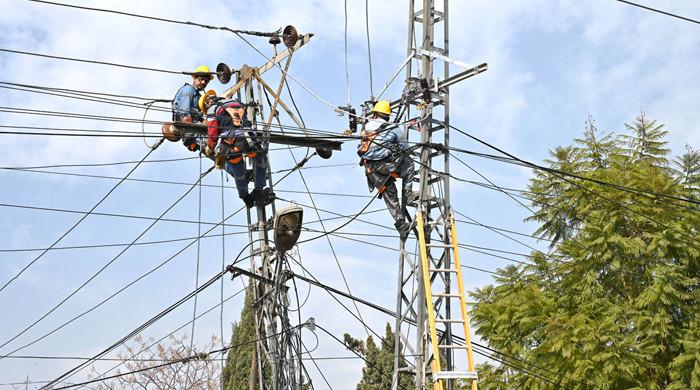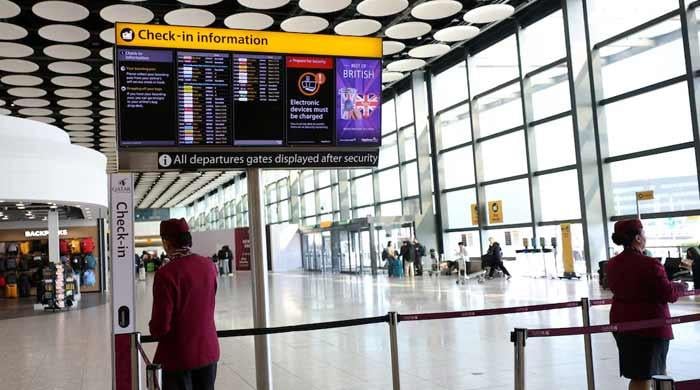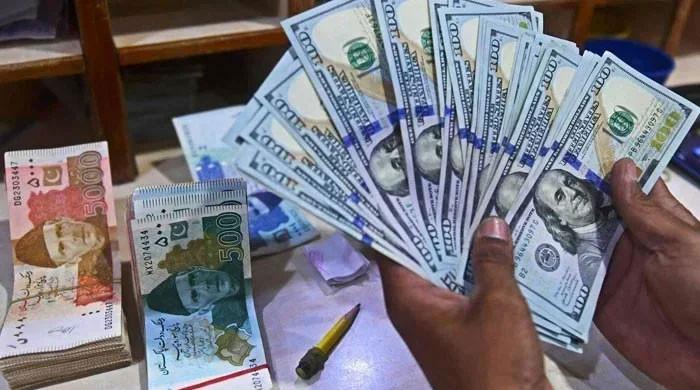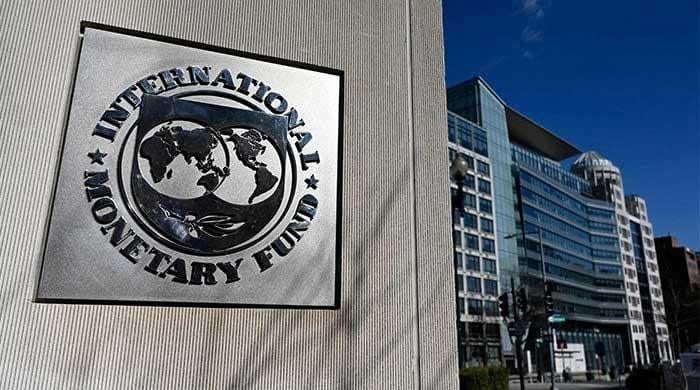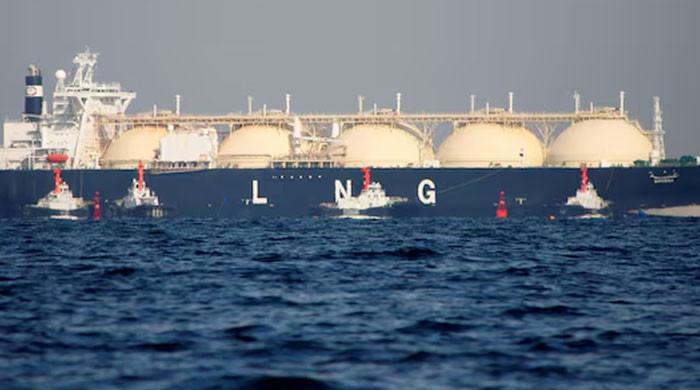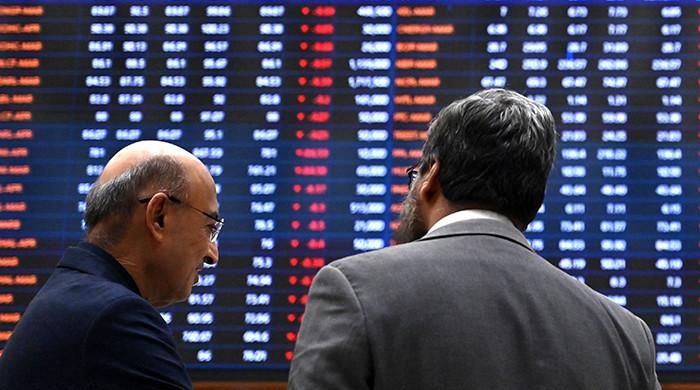Great Debate: Experts discuss challenges, opportunities to spur economic growth
Geo News’ "Pakistan Kay Liye Kar Dalo" features country's top businessmen, economic experts
June 15, 2025

- Lucky Cement CEO Tabba demands travel ban on non-filers.
- Arif Habib terms budget "growth-oriented, fiscal consolidation".
- Miftah slams govt for imposing super tax on export sector.
The country's top businessmen and economic experts on Sunday expressed mixed opinions about the recently unveiled Federal Budget 2025-26 during the Geo News special transmission "Pakistan Kay Liye Kar Dalo" held to discuss positive and negative aspects of the next year's fiscal strategy.
The special transmission hosted by senior journalist Shahzeb Khanzada, features former finance minister Miftah Ismail, Arif Habib Group chairman Arif Habib, Lucky Cement CEO Muhammad Ali Tabba, Federation of Pakistan Chambers of Commerce & Industry (FPCCI) Vice President Asif Inam, Topline Securities CEO Mohammad Sohail, and Gul Ahmed Textile Mills Director Zaid Bashir.
Expressing his thoughts on the federal budget, Tabba stressed that the government should pay special attention to exports and lamented that the current budget has no arrangements to improve it.
Tabba said that in the previous year's Great Debate, he had predicted about contraction in the large-scale manufacturing sector which he said turned out to be true after the budget announcement.
He was of the view that business growth is linked to the change of mindset of the government.
He, however, expressed fear that pressure would only mount on filers following the government's fresh financial moves instead of bringing non-filers to the tax net.
The Lucky Cement CEO said that the government has taken some measures to broaden the tax net by introducing restrictions on non-filers, including property purchases and others.
It should also impose a travel ban on non-filers, which would push them to comply with the tax regulations, suggested Tabba. He added that the government will have to take more steps to regain the confidence of investors, which is essential for business growth.
He also emphasised that the Federal Board of Revenue (FBR) system should be upgraded. Tabba predicted that it would be difficult for the federal government to achieve its economic goals.
The Arif Habib Group chairman said that there is no measure in the current budget that imposed further tax measures on the existing taxpayers.
However, he admitted that the government did not meet the expectations of the taxpayers, including the salaried class, for relief.
He added that only "symbolic" steps were taken to provide relief to the taxpayers, despite the government made promises to bring down the taxes after getting a fiscal space.
It has also proposed a Rs400 billion plus budget for enforcement measures this year after getting approval from the International Monetary Fund (IMF) which restricted the government in the previous fiscal year, said Habib.
"There is no capacity for new investment in Pakistan," said Habib, adding that active sectors are already having the ideal capacities which should be utilised first. He termed the new budget a "growth-oriented and fiscal consolidation" budget.
He anticipated a further decline in interest rates and energy prices in the country. Habib admitted that concerns would prevail for investment in new areas of industries in the presence of high interest rates, energy costs and taxation rates.
He praised the government's initiative for the real estate sector and termed the availability of mortgage financing a "game changer".
A global downtrend in oil and commodities' prices gave chance a Pakistan to bring down its current account deficit, said Miftah.
He was of the view that Prime Minister Shehbaz-led government lost its chance to provide relief to the salaried class amid declining per capita GDP and purchasing power for the last three years.
Miftah highlighted that the manufacturing sector was not developing in Pakistan compared to other countries in the region.
Regarding super tax, the former finance minister said that it was imposed during his tenure, starting from bank and tobacco sectors, which was expanded to all sectors by the current government, and now, it is imposed on exports.
He slammed the government for imposing a super tax on the export sector.
He criticised the FBR, saying that it could not collect even one per cent tax on the basis of its notices, and now, its officers were given the powers of arresting businesspersons.
Miftah recalled a top court's order that stopped the authorities from arresting an individual until getting an adjudicated verdict regarding tax default or fraud.
Speaking during the show, FPCCI Vice President Inam said that the country will have to address the issues related to taxation and the NFC Award to move forward.
He said that for the textile sector, domestic supplies are subjected to sales tax which is refundable but there is no sales tax on imported items.
Inam said that they suggested the government impose sales tax on both domestic and imported items.
Pointing towards the government's ineffective policies, the former APTMA chairman detailed that 120 textile mills were shut down and millions of people became unemployed.
He added that the closure of the textile mills meant the loss of consumption of 750 megawatts of electricity.
He highlighted the positive steps taken by the government including dropping interest rate to 11% from 22% and a decrease in energy rates.
Topline Securities CEO Sohail, expressing his opinion, said that the federal budget met expectations as per the economic challenges in which a "consolidation" budget could be presented.
He termed it a budget of "fiscal consolidation and gradual growth" of the national economy. The economist predicted that the economic growth would not be more than 4% in the upcoming fiscal year.
He was of the view that the tax rate on interest income was increased from 15% to 20% on banks which would easily generate Rs50 to Rs100 billion. Sohail suggested that taxes should also be imposed on national savings.
Highlighting positive developments in the budget, the Topline Securities CEO said that taxes on pensions were low and also spoke in favour of taxes on e-commerce sector. He said that the formal e-commerce sector was already paying 18% in taxes and now, informal sector will also come into the tax net.
He added that this budget reflected the government's intention to reduce its fiscal deficit and debts.
It may not lead to significant economic growth, but it would help the government avoid falling into a boom-and-bust cycle, he said.
Gul Ahmed Textile Mills Director Bashir strongly opposed the imposition of the super tax on industries, particularly the export sector, which he said would obstruct the path to economic progress.
He was of the view that the super tax was taking industries to a level that they cannot reinvest the profit. Bashir added that it would only be a short-term gain but the government sacrificed the future growth by imposing the super tax.




